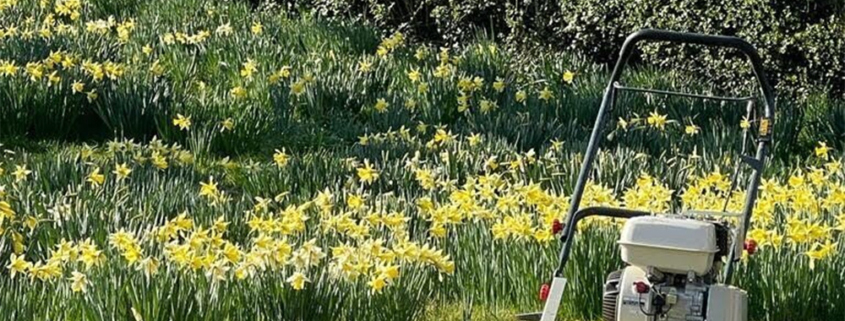No Mow, No Way
No Mow, No Way: David Hedges-Gower, Chairman of the Lawn Association discusses why we should re-think our ideas around ‘No Mow May’
For many gardeners across the UK, there’s no better feeling than the satisfaction of mowing a lawn. The fresh scent of cut grass, the tranquil morning atmosphere, and the sense of ownership over your garden – it’s a slice of paradise. May is a particularly delightful month for grass enthusiasts. Typically, the weather is beautiful, the grass is thriving, and it’s the perfect time to prep your lawn for the summer ahead.

No Mow, No Way
However, amidst the allure of No Mow May – the idea of abstaining from mowing for four to five weeks – lawn lovers like us know it’s not as straightforward as it seems. What would happen to our beloved grass during that month-long hiatus? It’s worth pondering, considering grass is, after all, a plant. It’s peculiar that lawn grasses, essentially plants themselves, are being targeted by a movement promoted by Plantlife.
Mowing isn’t just a chore; it’s a beneficial pruning technique, particularly for our sustainable, native grasses (not ryegrasses). Each trim redirects the lawn’s energy sideways, fostering denser growth. So why would we relinquish this practice during a time when nature seems to be in our favour? And can simply letting lawns grow for a month truly combat the loss of 93% of our meadows?
The answer is a resounding no. Allowing our lawns to run wild for a few weeks won’t make a significant dent in the broader issue. Instead, I suggest we dust off our mowers and get to work. But this doesn’t mean mindlessly mowing everything to oblivion. For those with smaller gardens, consider leaving a section untouched for pollinators. Perhaps even create a dedicated flower bed. Those blessed with larger gardens have even more room to play with.
May presents an opportune moment to prime your lawn for the summer ahead. And mowing can indeed be eco-friendly, especially with the rise of robot and battery-powered mowers. There’s also no need to resort to cheap, synthetic fertilizers or harmful herbicides. So, whether you’re a fan of pristine stripes or entranced by the efficiency of robotic mowers, indulge in your gardening pleasures.
Mow to cultivate density and aesthetics alike. Mow for the environment’s sake. And if space permits, offer some respite to pollinators.
For the latest industry news visit landscapingmatters.co.uk/news
Get all of the big headlines, pictures, opinions and videos on stories that matter to you.
Follow us on Twitter and Instagram for fun, fresh and engaging content.
You can also find us on Facebook for more of your must-see news, features, videos and pictures from Landscaping Matters







![landscaping ]](https://landscapingmatters.co.uk/wp-content/uploads/2023/03/landscaping--180x180.jpg)




